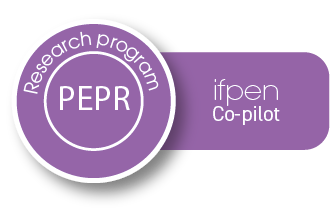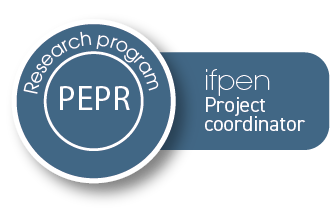A research program to decarbonize industry
|
|
Paving the way for a low-carbon future for industry
Research and development have a major role to play in supporting the decarbonization of French industry and the development of national industrial sectors for decarbonization solutions. This is a fundamental challenge, given that industry is responsible for around 20% of France's greenhouse gas (GHG) emissions. The National Low Carbon Strategy aims to reduce industry's greenhouse gas emissions by 35% by 2030 and 81% by 2050, compared with 2015 levels.
The SPLEEN research program in a few words
The PEPR "Supporting innovation to develop new, low-carbon industrial processes" (SPLEEN) is part of the France 2030 national acceleration strategy "Decarbonization of industry" and aims to prepare a technological offering and breakthrough solutions that will help France meet its climate commitments by 2050 and strengthen national sovereignty over technologies dedicated to decarbonization.
>> Read more about the SPLEEN PEPR
Key figures
- 10 targeted projects
- 40 partners (EPIC, EPST, Universities, Schools)
- 300 researchers, teacher-researchers and engineers
- 70 laboratories involved
- 70 million euros budget
- A 6-year program
IIFPEN is co-piloting 2 other PEPRs and is also participating in 4 other PEPRs backed by a National Acceleration Strategy, known as "PEPR-SNAs" (26 in total at national level) and 6 Exploratory PEPRs (17 in total at national level).
|
|
The 4 strands of the SPLEEN research program
Area 1 : new prediction and monitoring tools
Area 2 : integration of low carbon energies and efficiency
Area 3 : processes decarbonisation and intensification
Area 4 : CO2 storage and valorisation
IFPEN, bringing knowledge and expertise essential to decarbonization
IFPEN draws on several of its research fields essential for the decarbonization of industry, including :
- Catalysis and separation, crucial fields in the design of innovations favorable to the transition in the chemicals and energy sectors
- CO2 conversion, particularly chemical and photocatalytic
- The development and application of life cycle analysis (LCA) methodologies
- Data processing and real-time management of processes
"While this PEPR, like all the rest of them, relates to low-TRL research, from the laboratory scale through to proof of concept, our aim is not only to innovate but also to integrate the industrial purpose of the R&D and its societal impact upstream. This impact is therefore taken into account from the outset of projects and industry is a stakeholder in the PEPR’s consultative bodies” , underlines António Pires da Cruz, the PEPR’s co-director for IFPEN.
IFPEN’s participation falls within the framework of its scientific approach and its different research problems: Understand, on a molecular or adapted scale, chemical, catalytic or enzyme reaction mechanisms (challenge 2), understand the effect of confining fluids on their dynamics and reactivity in porous media (challenge 3), model closely coupled phenomena with a view to simulation scale change (challenge 6) and evaluate the economic and environmental impacts of energy transition innovations (challenge 9).
You may also be interested in
IFPEN and the MOBIDEC PEPR
IFPEN is leading the MOBIDEC PEPR, an upstream research component supporting the French national acceleration strategy for the digitalization and decarbonization of mobility, alongside Gustave Eiffel University, joint leader of the research program. Integrated in the France 2030 objective, it is aimed at developing an efficient, sovereign and resilient mobility sector.
IFPEN and the B-BEST PEPR
IFPEN and INRAE are leading the B-BEST PEPR*, the research component supporting the French national acceleration strategy relating to “Bio-based products and industrial biotech - sustainable fuels”






 IFPEN and the CNRS are leading the SPLEEN PEPR*, an upstream research component supporting the French national acceleration strategy relating to the decarbonization of industry.
IFPEN and the CNRS are leading the SPLEEN PEPR*, an upstream research component supporting the French national acceleration strategy relating to the decarbonization of industry. 


